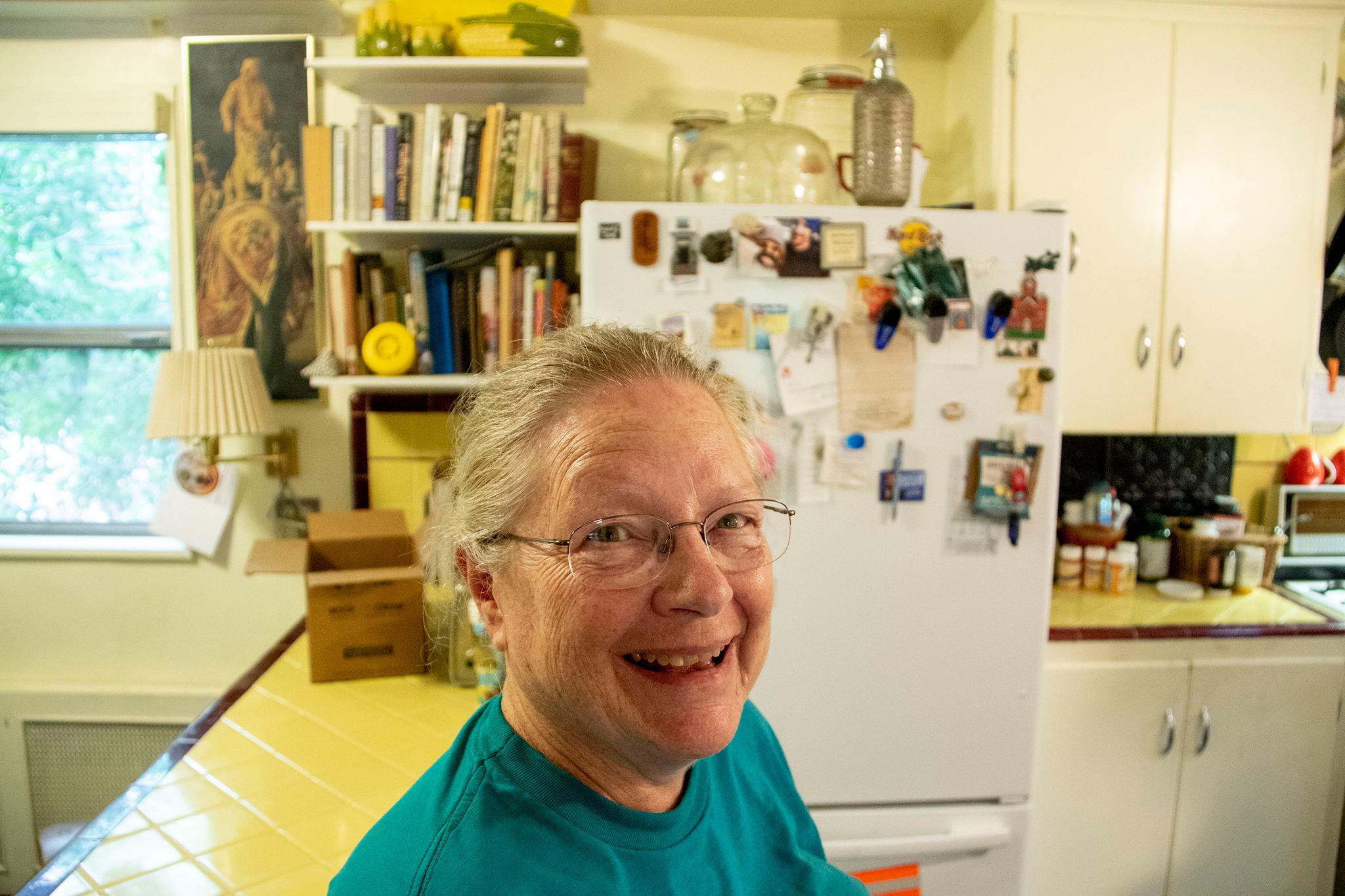Kathy Groth and her family have boarded and fed unhoused strangers for as long as she can remember.
"I'm a bottom-feeder, honey," the 72-year-old Aurora resident said. While she doesn't have contact with the hardest criminals, "just a slot above those, I see them all. I feed them.... But if you show up at my doorstep, I'll put you to bed. And people know that."
That includes people who are addicted to drugs, involved in violent relationships or living without housing or work. Many are mourning loved ones, who died or abandoned them. The preacher at Groth's church knows her willingness to host people facing hard times, and he drops them by when they have nowhere else to stay.
"There's an element of our society that we don't even think about," Groth said, "except that I do all day."
For Groth, the tradition started when her husband was with the 101st Airborne Division. They lived off base together in Clarkesville, Tennessee. His fellow soldiers would be on the outs with their girlfriends and would come crash at Groth's home.
Eventually, the couple moved to Colorado, and they had children. As the kids got older, Groth began taking in their friends and acquaintances.
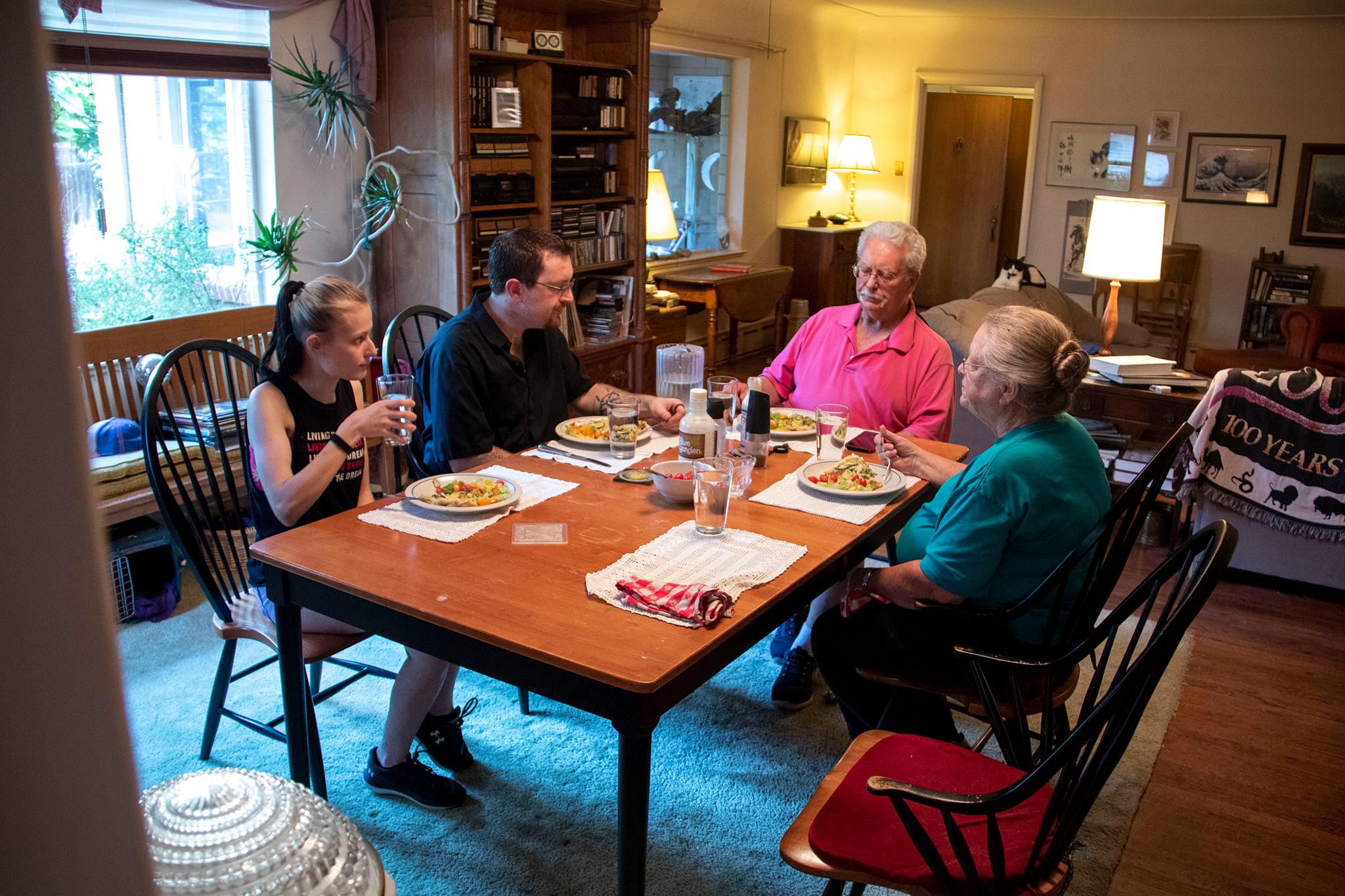
There was an alcoholic. Her boyfriend had convinced her that people were stalking her. He promised her protection, though he beat her. Sometimes she left and called Groth's son for help. He would find her and bring her home. His family would shelter her until she returned to her boyfriend.
A young man -- "Eeyore in human form," Groth said -- was on the outs with his father's second wife. He couldn't live with them. He also didn't make enough at work to afford his own place. He and his girlfriend battled. She was abusive, Groth explained. They broke up for awhile, and he was planning on living with Groth, paying $700 a month. But then he made up with the woman, and they started renting a motel room for $100 a night -- not the outcome Groth hoped for.
Near Groth's house in Aurora, there was a man who lived with his mother. Like Groth, he, too, would take in struggling people. But he would get high on meth and accuse them of stealing.
"So he would corral all their belongings, throw them out and hold their stuff hostage," Groth said. "And they would come across the park and up the cul de sac, and knock on our door and ask my son if they couldn't please stay while they try to get their belongings back. This would happen over and freakin' over again."
Eventually, the man went to prison.
"One of the guys that's occasionally stayed here, but never for more than a night or two -- his mother was dating a guy that was rough with her," Groth said. "And when this young man confronted him, the new boyfriend stabbed the guy inside of his head and took out his eye. You can imagine how that affected his performance ever after."
Groth's family was able to offer some stability for him.
"I don't feel like what I do is unusual," she said. "A lot of people do. And I kind of feel sorry for people who are so frightened of the world."
Groth learned to take care of strangers and people in need from her mother, who learned it from her own mother during her childhood on a farm.
"If somebody turned up, that was what you did," said Groth. "You invited them for a meal or whatever they were willing to accept."
Raising six kids, Groth's mother always set an extra plate at the dinner table.
"And if somebody would question her, she'd say, 'If nobody turns up for dinner, then that's the place for the Christ child.' And you better not argue with her. You better set the extra place."
Groth's grandmother made fun of her daughter for that practice -- until, one day, the grandmother met an old friend downtown and invited her to Groth's mother's house for dinner. The friend said, "But she doesn't know I'm coming."
"And my grandmother says, 'Oh, she always sets an extra plate. It'll be fine,'" recalled Groth. "And we never let our grandmother live that down."
Groth described her willingness to let people board as old-fashioned hospitality.
Some things have improved over the decades, she said. But a duty to care for people, particularly strangers, has dwindled, and people are more timid than they used to be.
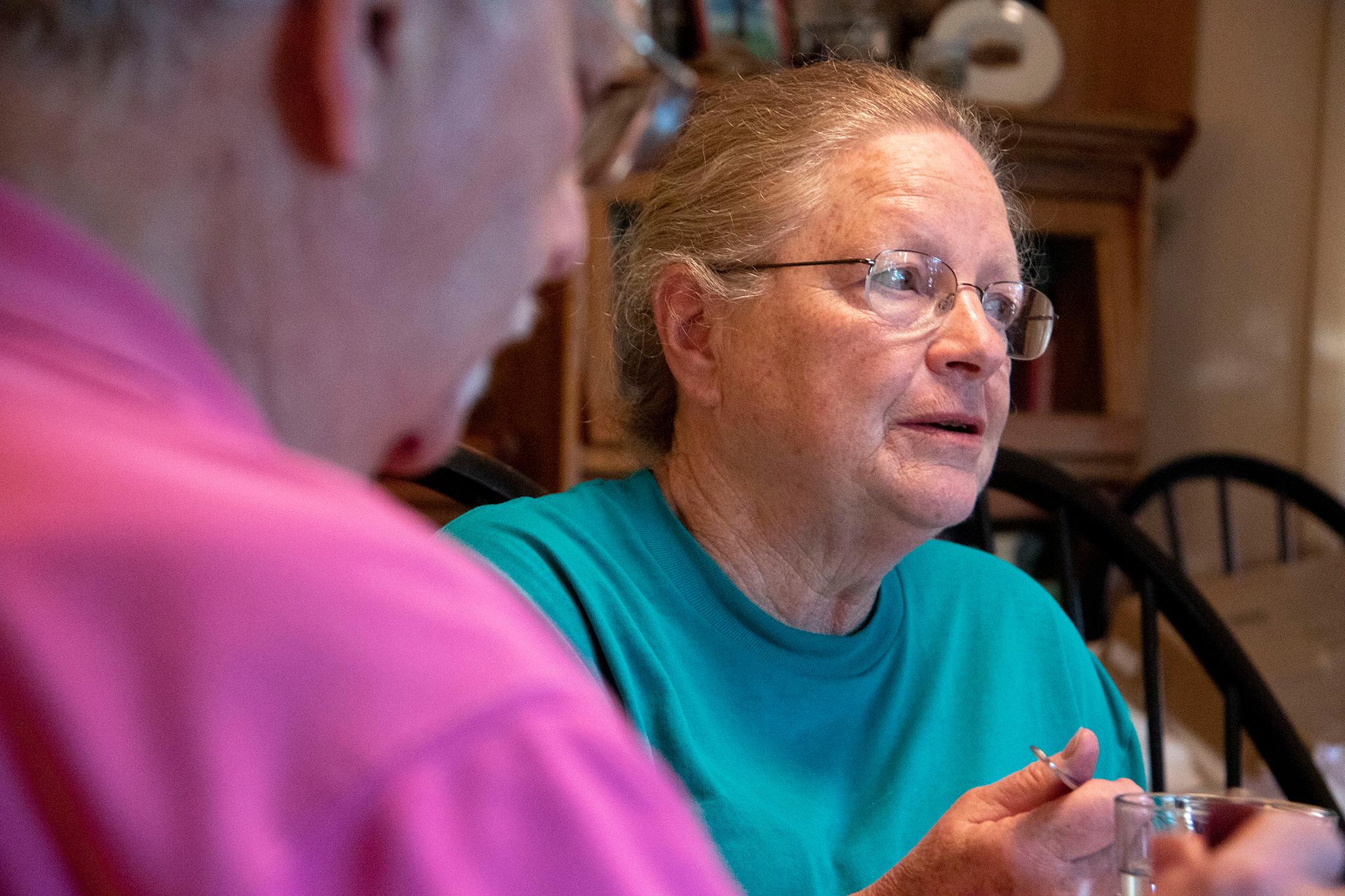
She has no illusions about the safety of the world she inhabits. But she does believe in being strong, self-reliant, and also compassionate. Wallowing in fear makes all of that harder.
"You know, we're not of a culture where it's like a religious or cultural demand," Groth said. "But it's what you do. You share what you have. You embrace the people that are around. And if somebody staggers to your door asking for help, you make a quick decision."
As much as it can hurt, Groth does not always decide to let people into the house.
There's a young man who went to high school with her children. He spent many nights at her home.
"I'm not gonna do an amateur diagnosis, but somewhere along the lines the cogs quit connecting, and he got pretty crazy," she said.
He would occasionally ask to stay with Groth, and she let him.
"The crazier he got, I said, 'You can sleep on the front porch. That's close enough.' And now he's crazy enough that I just tell him I can't have him in my house," Groth recalled.
It's rare that she doesn't give somebody a chance to stay with her at all -- even if they eventually have to move on.
Take the woman she met who had quit her job as a nurse.
The nurse and her husband moved in with her parents to care for them in their later years. Within a few months, her parents had died. The young woman's brother was the executor of the parents' estate and sold the home quickly.
"She'd gone from caring for her mother in their home to no place to go," said Groth.
The woman put her belongings in storage units and began living with her husband in a truck. That worked out until her husband was arrested on a minor charge. The jail wouldn't release him because of COVID restrictions. It was winter. The former nurse found herself cold and by herself in the truck.
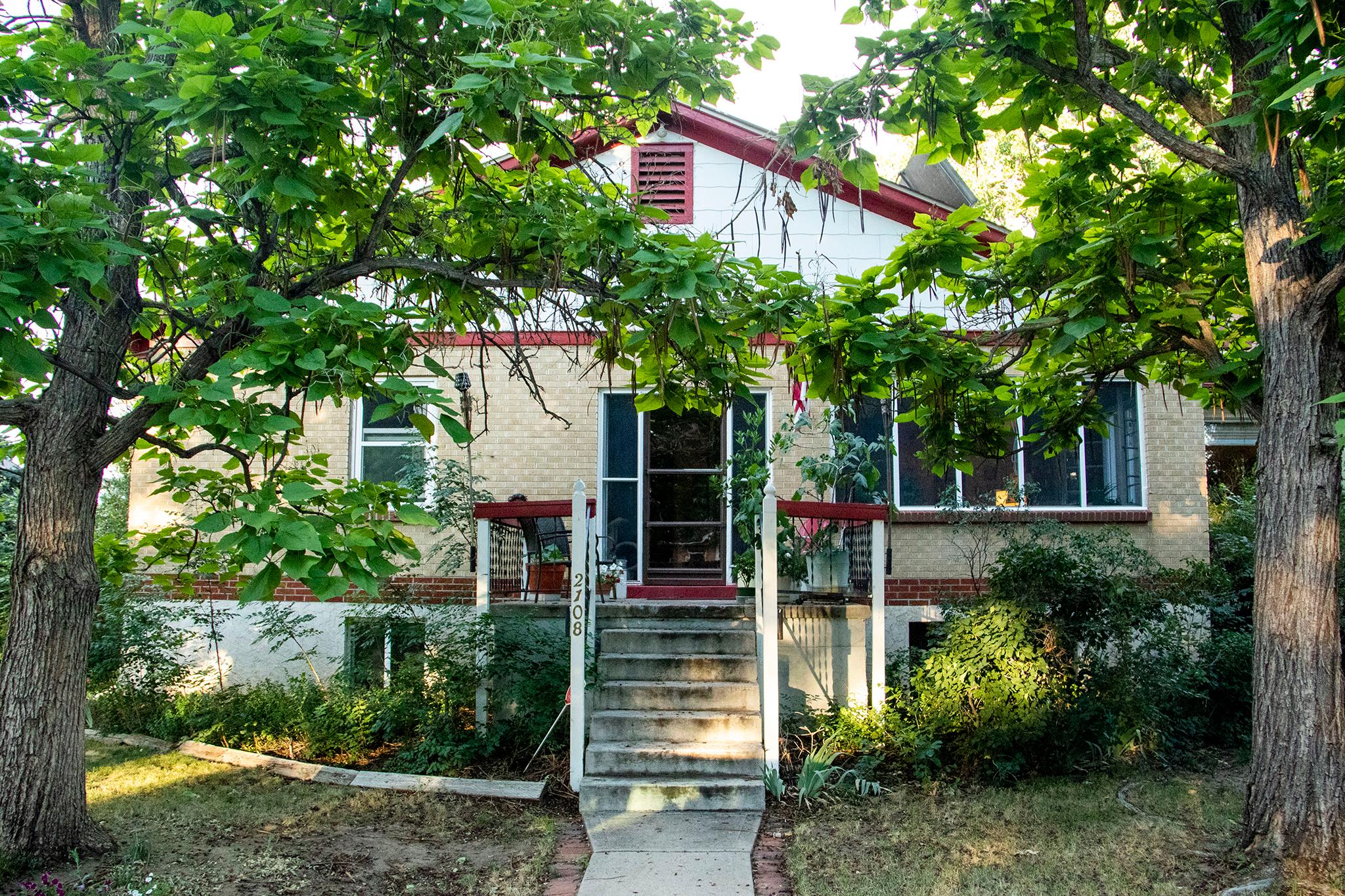
"So I let her sleep in my spare bedroom, because she was all alone," said Groth, who had never been comfortable with the former nurse's boyfriend.
"When he got out of jail, I figured they could snuggle up together in the truck, and I didn't invite them to stay with me," Groth said. "You know, I feel bad about it. But that's neither here nor there."
Though Groth understands boundaries, she is fed up with the fearmongering over homelessness and encampments she hears at city council meetings.
"The things that people say when they demonize people who are poorer than they are are dog whistle things: 'The urine-filled bottles and the excrement and they're probably having sex in those tents.' What do you care? We seem to have taught ourselves to find a reason to hate people who are without."
Election season rhetoric, when people scapegoat the city's problems on the poor, bothers her particularly.
"It became part of the political discourse to provide voters with somebody to blame," she said. "'This and this happened to you because of x. So you should vote for me. And I'll protect you.' Which is, as the dictionary says, nonsense."
Her hope is that more people drop the fear-mongering and instead actually help those who may be less fortunate. To do so, people need to have the courage to interact with others -- something many have been taught not to have.
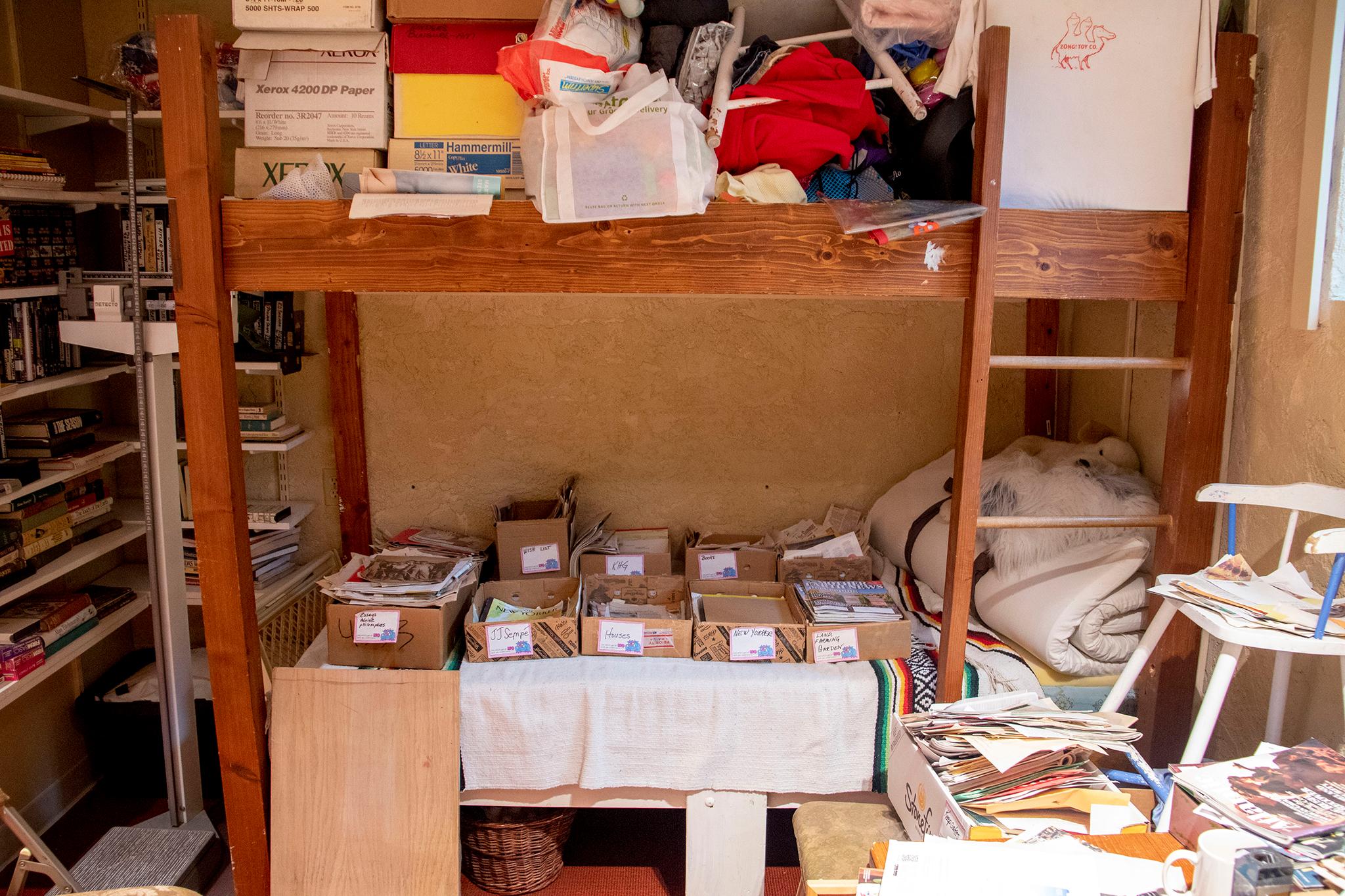
Groth, in contrast, is bold.
"I mean, I'll take on anyone -- high, schizophrenic, other cultured, enraged with jealousy -- and talk them down. Because I think I can. And I think that the people who are too afraid to show their compassion in a physical way, have been taught that if you don't have material success, there's something wrong with you. 'So if somebody needs a place for me to put them to bed, it's probably because that somebody is somehow bad.' Can you spell puritanism?"
Groth has learned to have conversations about expectations with people spending the night.
"If your potential roommate comes from part of your community, it's easier to sit down and say, 'You know, it just drives me nuts when you leave the bathroom lid up, always shut it, and we'll be fine.' Or, 'If I ever catch you drinking the milk out of the carton, you're dead meat.' Or, 'You know, you really like it when people hang the towels,' or 'You come from a home where nobody wears shoes in the house.' You go through those things, and you talk with each other. And you figure out which things you can be grown up about and come to some middle ground, and which things are deal-breakers."
When conflict does happen and roommates are struggling to compromise, she likes finding a third party, kind of like a couple's counselor, who can serve as a referee.
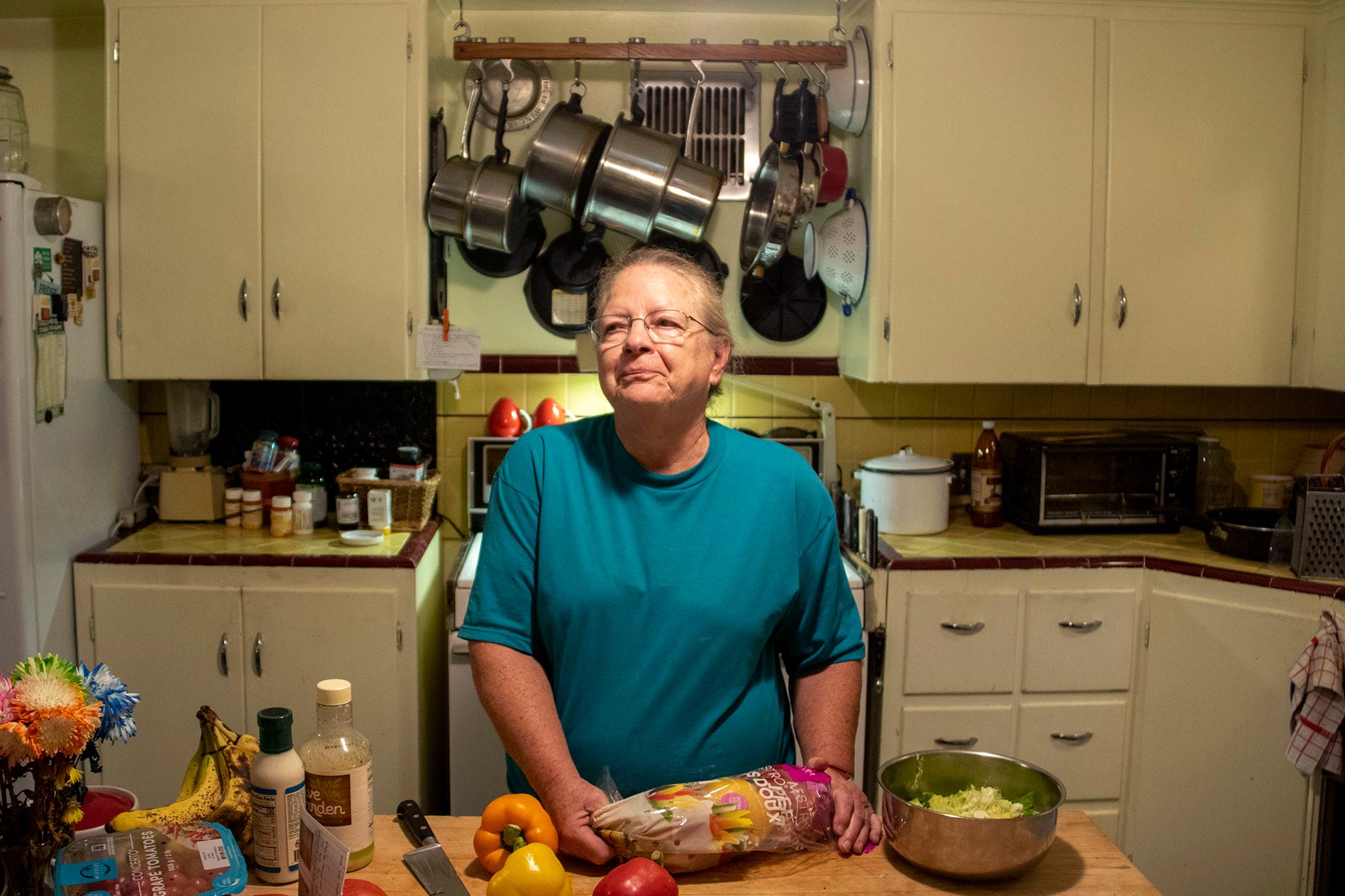
How does Groth determine who might be a good fit?
"I would say trust your gut," she said. "Don't judge a person by their clothes or their lack of teeth. But do maybe have a conversation where you say, 'What happens when somebody really makes you mad? Because this is what happens when somebody makes me really mad.' So that, you know, both of you have acknowledged the fact that that's going to happen."
She also said its important to clarify what sorts of things a potential roommate might need. Do they have transportation or will they need rides? What about Medicaid? Do they need help filling out paperwork? Or do they just need a place to lay their head.
People often ask her if she's afraid of being robbed.
She does acknowledge that people considering hosting others must think about how they store their possessions and what they're willing to lose, in case someone does steal from them.
Groth has only been robbed once, and she believed it was by a family member of someone who had been staying with her, though she's not sure.
She looks at her relationship to property this way: "I don't always lock my car. But I always take what I can't afford to lose with me," she said. "'Lead us not into temptation' means a lot to me."
She recalled leaving her lunch on her car seat, with her windows down.
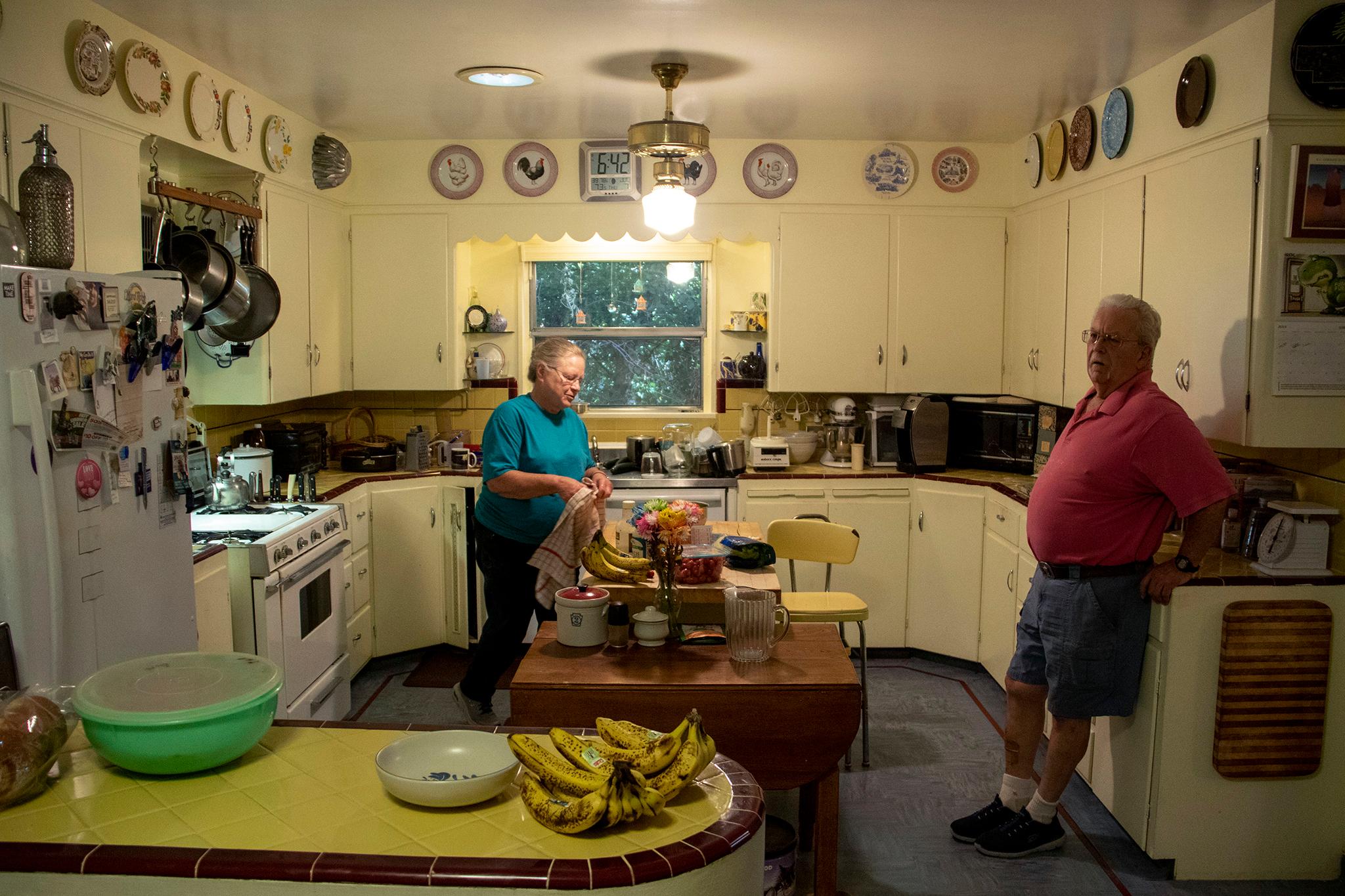
"Somebody walked by, stuck their hand in, took my tapes, my audio tapes, and my lunch," she remembered. "And I said, 'I hope they earned enough from the tapes to buy a drink to go with my lunch.'
"I think you have to figure out what's really important to you," she continued. "If you have something priceless, don't point it out, and maybe you secure it."
For Groth, the risks are worth it. She has seen her interactions change lives.
She recalled one young man had lost both of his parents. He lived in Denver, where he had steady work and was sharing an apartment with several people. They moved out, and though he tried to keep the apartment, he couldn't afford it. He lost his job. His car broke down, and a guy who was supposed to take him to get his car repaired abandoned him on a 10 degree night.
He walked for miles and eventually stopped at a church where his parents had taken him when he was a kid. He curled up outside and went to sleep. The food bank where Groth works was in the church and open that night. The director invited him inside to warm up and sleep on a couch.
The people at the food bank started looking for shelter for him.
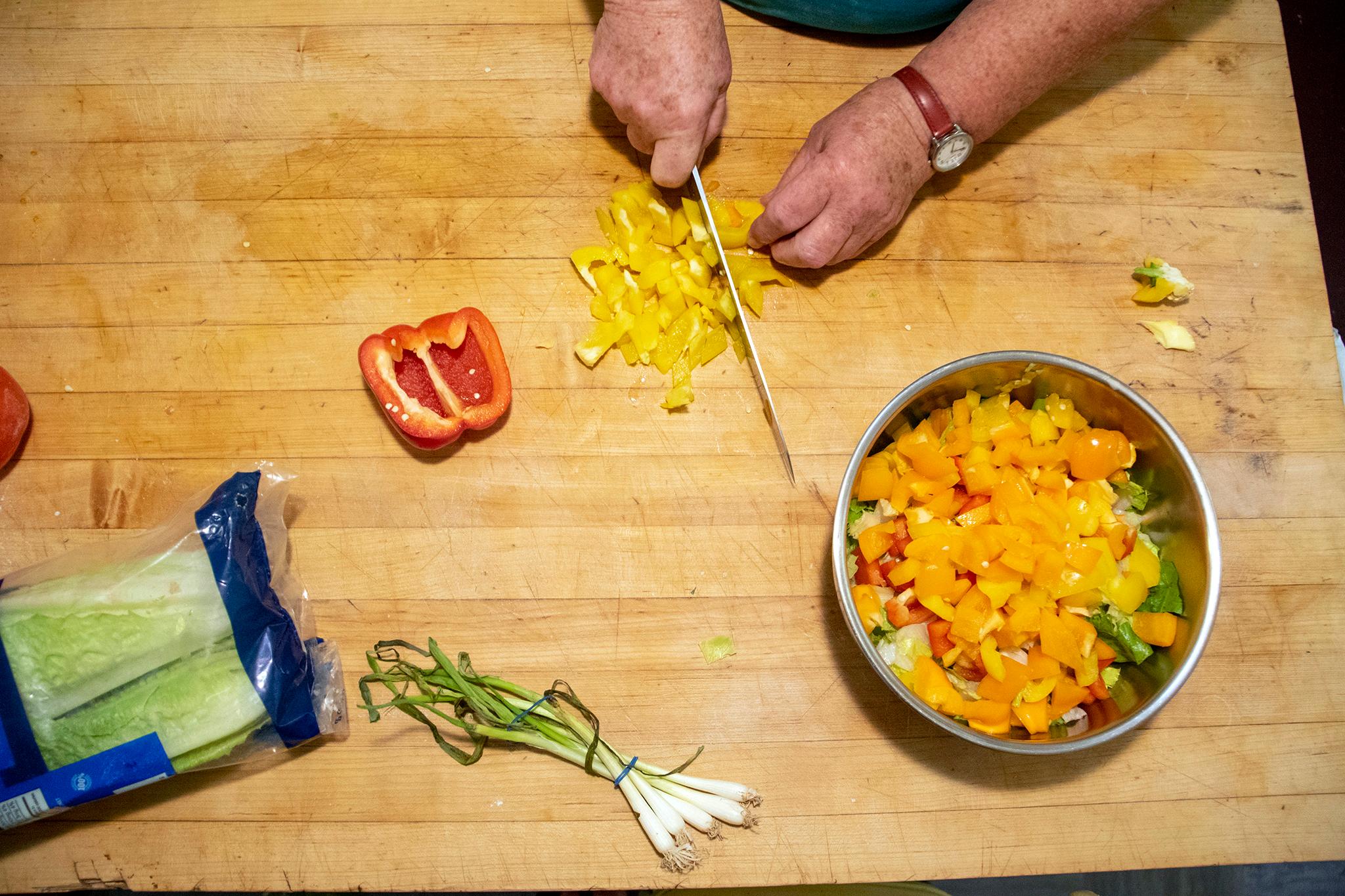
"So we're on the phone. We're trying to talk to people. The police department didn't have a damn clue," Groth said. "Supposedly, if you call the police department, they have to send a car to give somebody a ride to shelter. Except that the shelters say unless it's below 20 degrees and raining or snowing, you're not eligible to have a place under a roof," unless you got in line for the lottery at 2 p.m. for a bed.
Finally, Groth said, "Honey, I'm just gonna take you home with me."
She piled her guest bed with comforters and pillows.
"The kid just burrowed into that bed," she said. "He slept for about 14 hours."
The next day, Groth's husband gave him a ride to the spot where he had left his car, but it had been towed. So the husband took him to an apartment building where acquaintances were living.
"A day later, he called and said he had found a friend from somewhere that would let him stay," Groth said. "And he was going to go to Lowe's and see if he could get a job. That's the best outcome I've had in a long time."
As she looks around the metro area and sees so many people in despair, she wonders why more people don't take others into their homes.
Homelessness has risen, and boarding unhoused people is one immediate solution to the crisis.
"How can you not help people?" she said, in tears. "I don't understand how people can not help, be so afraid or so superior. But somehow that's the community that we've bred."
And in this community, not everybody she knows thinks she's doing the right thing by giving people without a home a place to stay.
"People tell me I'm crazy," she said. "So I guess maybe we need to make people more crazy."

